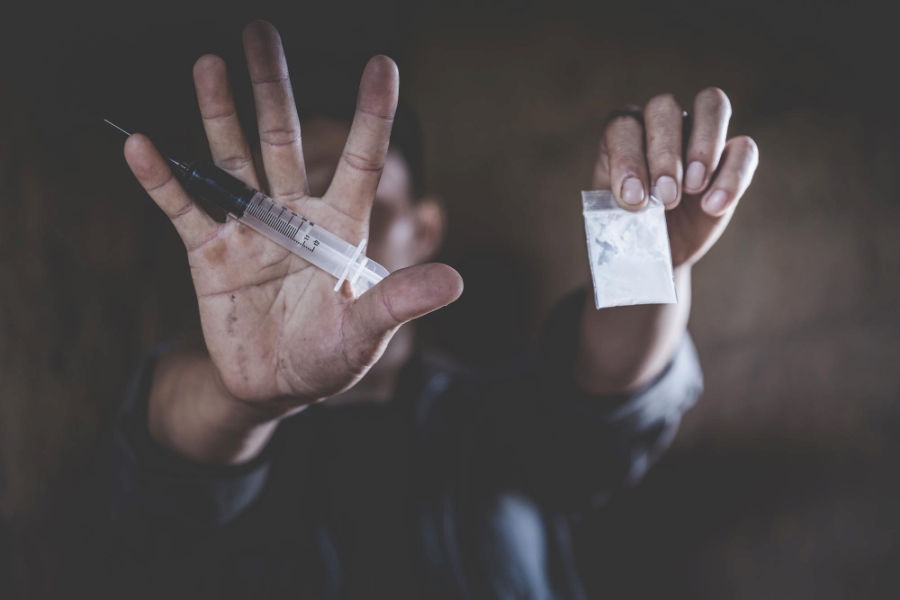Millions of people suffer from various substance abuse disorders. Struggling with an addiction can seem like a lonely place. It doesn’t have to be. A promising number have recovered from a seemingly hopeless condition through various ways.
For many suffering from alcoholism, and other types of addictions, they have found a new way to live by practicing the principles of Alcoholics Anonymous. AA has helped millions struggling with addiction to recover.
While AA insists that they have no rules or mandates to be a member, the fellowship has endured based on few common principles. The only requirement for membership in AA is to have a desire to stop drinking. That is it, nothing more is required of any member.
Ways to successfully recover are suggested in the steps and traditions. However, as the name indicates, anonymity is the bedrock of the fellowship. But what is anonymity in AA? Let’s explore what the spiritual foundation of AA’s worldwide fellowship means.
Public Anonymity
During the early years, some who ventured to give AA a try were fearful of personal scorn if their problem became public knowledge. In fact, the two initial members of the group were a highly praised financial wizard and an Akron, Ohio medical doctor.
While neither Dr. Bob Smith nor Bill Wilson really felt compelled to hide who they were, they immediately realized an urgent need for personal privacy. At the time, alcoholism was determined to be a mental health problem so extreme, many were relegated to institutions.
If you suffered from alcoholism, you were deemed insane. Quickly, the medical community saw an unexplainable level of success in the AA method of treatment. It arose out of little more than one alcoholic talking to another. The results have proven the test of time.
However, it was quickly understood that no one had the right to disclose another’s involvement in Alcoholics Anonymous. Out of principle, the fellowship established a place where anyone from any walk of life could privately discuss their struggles with alcohol.
Each meeting was a private gathering to discuss personal struggles with alcohol. Who was seen there and what was said there stayed there. It was a foundation of the fellowship’s rise to success, and has remained such over the last 80-plus years.
Personal Anonymity
The degree to which someone tells others that they are part of the AA fellowship is a personal decision. However, there are guidelines that speak to personal anonymity at the level of press, radio, and film.
This single aspect of AA anonymity has received much attention with the rise of social media. While no social media outlets existed in the late 1930s when the fellowship of AA was blossoming, the principles are the same in the technological age.
AA’s traditions strongly caution against any member profiting or aspiring to gain notoriety from their membership in the fellowship. This includes using their own experience, or benefiting from the experience of others.
There was a clear indication that AA would best help the majority by maintaining anonymity on a professional level. Nevertheless, there was another key principle, and maybe even more critical element, of the anonymity aspect of the fellowship.
If a member proclaimed the magnificence of his or her AA experience publicly, it might present another, even more destructive outcome. It could quickly undermine the success of this principle-based program if someone were to announce its wonders, and then fall off the wagon, so to speak.
There could be nothing more damaging to the credibility of a design for living if one of its members was charged with vehicular homicide while intoxicated. It has happened for certain, but the principle of anonymity at the public level helps to insulate AA against such.
AA has helped millions of alcoholics recover from an apparently hopeless condition of mind and body. Many 12-step programs have followed AA’s guidelines to help treat other forms of addictive behavior. At the root of many is an understood principle of personal anonymity.
If you feel you have a problem with drugs or alcohol, you may feel as if there is no longer any hope. That is not true. There is help available. All you need to do is ask. If you choose to visit a local AA fellowship to get started, that’s a tremendous idea.
You can go to any meeting knowing that your personal privacy is valued. It is Alcoholics Anonymous for a reason. Whatever you do, reach out for help today. There is a solution that can open a new life that you never imagined. Reach out for help today. Contact us today at 855-936-4435.










